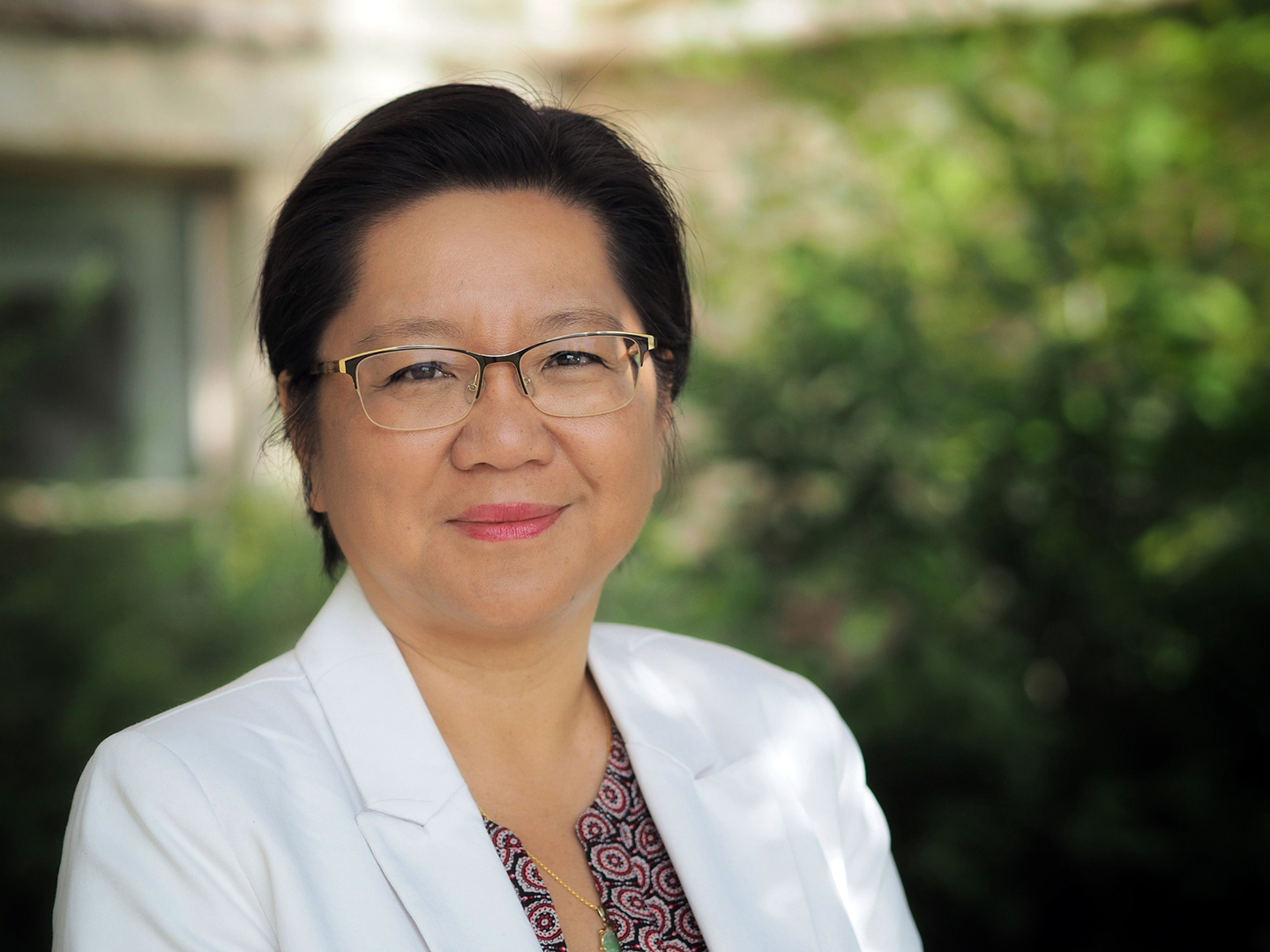
Lili Liu's research clarified challenges with reporting and identifying missing individuals with Alzheimer's and dementia. Now she's helping develop a system that allows the public to upload sightings to aid local authorities. (Photo: Craig Soars)
Lili Liu remembers a time when elderly individuals with dementia and Alzheimer's were treated in psychiatric wards. As a young graduate student, she saw this first-hand when researching spatial disorientation associated with dementia. Fortunately, the field of gerontology began to develop during her studies, when the medical community recognized the need for a separate specialization that addressed the unique issues faced by aging populations.
Liu, now the Chair of the Department of Occupational Therapy in the Faculty of Rehabilitation Medicine, contributed to the success of Bill 210: the Missing Persons (Silver Alert) Amendment Act, which received Royal Assent on December 15, 2017. The amendment formalizes a broadcast messaging system to notify the public of a missing senior as soon as practicable, and allows the use of relevant identifying information obtained independently of the act to be shared through the alert. Liu and her AGE-WELL team provided research findings to provide the evidence required for the unanimous adoption of the bill's amendment.
The Unique Challenge of Deflection
Liu's research drew heavily on the experiences and observations of caregivers and other stakeholders, and identified a number of issues and challenges with the current procedure for reporting and searching for missing individuals with Alzheimer's and dementia.
"Unlike with children, people don't automatically assume an unaccompanied senior is necessarily lost," Liu shared. "And even if they are concerned, they may be reluctant to approach them for fear of causing offence."
A desire to preserve dignity and avoid embarrassment can also push lost individuals to respond to concerned inquiries in a dismissive manner.
"Quite often, a lost senior can be surprisingly convincing in reassuring someone that everything is okay, to the point where it can be almost impossible for anyone to realize something is wrong," said Liu.
The process for reporting wandering adults requires caregivers to file a police report and have officers visit the house before any alert would be issued, creating a considerable delay before any meaningful search action could be taken. In 2013, Sam Noh's father was reportedly seen by others who did not know he had strayed on the day he went missing. Frustrated with a lack of government action, Noh helped form the B.C. Silver Alert project, a citizen-led initiative. While 36 U.S. states have already implemented an official silver alert system, only Manitoba and Alberta have officially incorporated similar legislation.
"Time is of the essence," Liu confirmed. "Often, lost seniors will try to make their way back to their old homes. In one instance, a Calgary man was found walking along a highway trying to return to the family farm. Aside from concerns about exposure, many individuals with Alzheimer's are inexplicably drawn to bodies of water, which is another risk."
Liu shared some of the reasons why adapting the methods of the existing Amber Alert system would not be practical for missing seniors.
"When a child goes missing and an Amber Alert is issued, it's because police usually suspect an abduction," Liu explained. "As a result, the search effort often focuses on locating vehicles or license plates. There isn't a strong precedent of searching on foot or entering buildings, which is a problem when most seniors who wander are walking."
The fact that more adults than children are reported missing each year also introduces the very real risk of "alert fatigue" - the desensitization to a constant barrage of alerts.
Crowdsourcing an Effective Solution
Together with Eleni Stroulia, a professor of computing science at the University of Alberta, Liu's AGE-WELL Team has also been involved in the development of an app, Community ASAP (C-ASAP). The concept was proposed by Ron Beleno, a caregiver and member of the Centre for Aging & Brain Health Innovation (CABHI) Seniors' Advisory Panel, who collaborated with the team to apply for funding through CABHI's acceleration services.
The system aims to provide people with a way collectively contribute information that can quickly inform and update the search effort. Volunteers can register and enter multiple addresses and a corresponding radius in which they are willing to receive an alert on mobile devices. Caregivers can upload identifying information, a photograph and advice on how to approach the missing person.
When an individual goes missing, their caregiver can issue an alert on the platform which includes the person's last known location. Local police coordinators can use this information to simultaneously issue a missing person alert over traditional channels.
Registered volunteers are then notified if the missing individual was last reported within the specified areas they had entered. Volunteers can report sightings which may provide crucial location updates for the authorities to locate the person.
"The idea is for people to keep their eyes open and report, but not for volunteers to search for missing persons," Liu emphasized.
Once an individual is located and safely returned home, the file is closed and all volunteers are notified that the search is over. The details from each case, including sighting locations, are logged and can be referenced in the future should the same person go missing again.
The adoption of the app could lead to the development of a cost-effective database with minimal equipment requirements that could be licensed out across the country to police and rescue services. There is also the potential to expand it to other populations that may go missing, such as children with autism.
Testing of the system began this May in Edmonton, June in Calgary, July in Toronto, and October in Coquitlam. Now, Liu hopes that C-ASAP will be able recruit thousands of subscribers across Canada and in itself bring more awareness to the issue of dementia-related wandering.
"The goal is to keep people safe," said Liu. "That's within the power of our collective community."